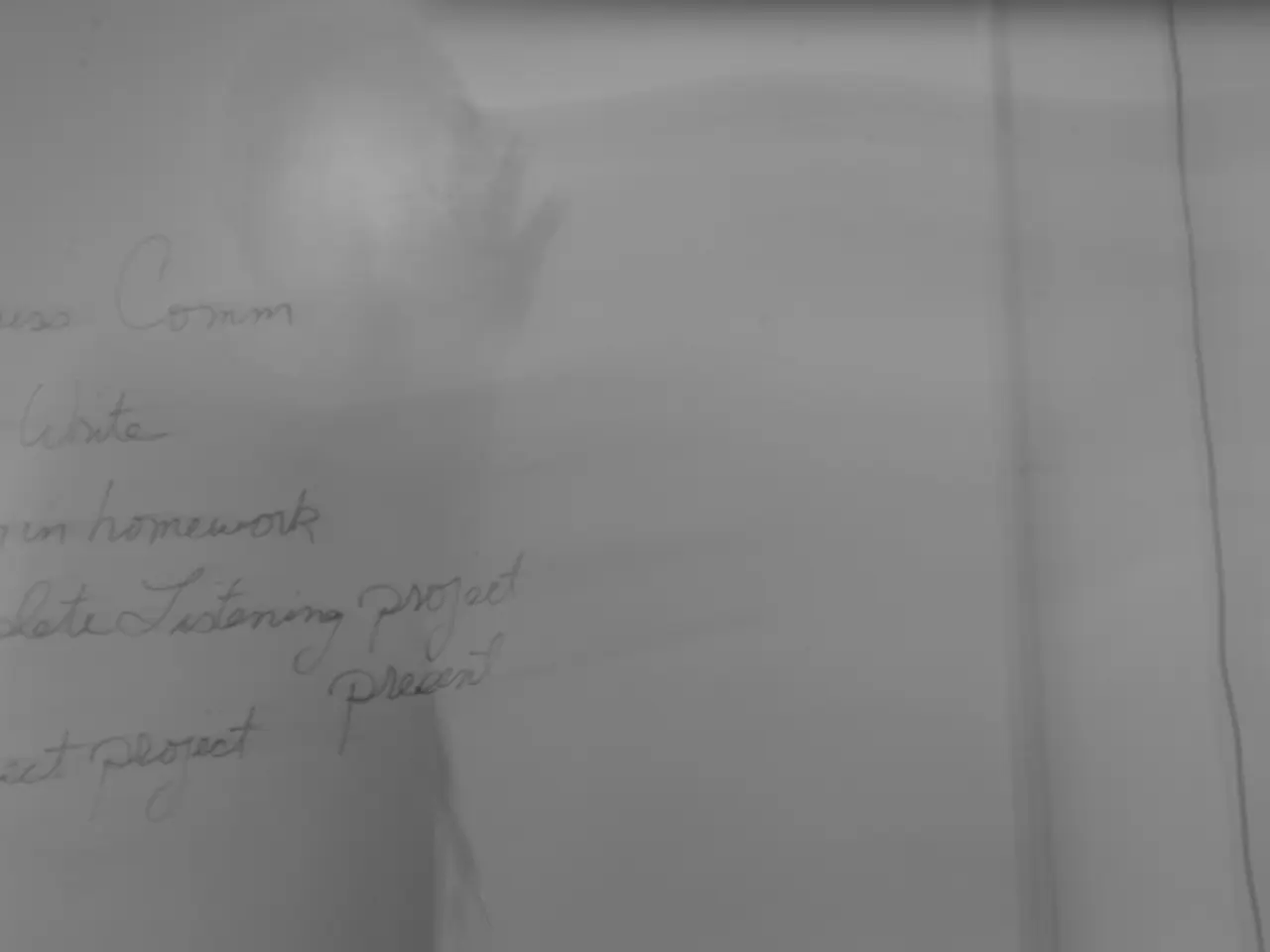Potential effects of tariffs, according to Atlanta Fed's Bostic, may lead to an extended period of inflation.
In a recent development, Atlanta Federal Reserve President Raphael Bostic has issued a cautionary warning about the potential long-term effects of U.S. trade tariffs on inflation. Bostic predicts that the impact of tariffs on inflation will be slow, persistent, and drawn out over a year or more, potentially prolonging inflationary pressures [1][3].
This prolonged period of elevated inflation could complicate the Federal Reserve’s efforts to bring inflation down. The risk exists that inflation expectations could become unanchored, making it harder to control inflation [1][3].
Bostic projects only one interest rate cut in 2025, reflecting the uncertainty caused by tariffs [1][2]. This cautious stance denotes a significant concern that tariffs represent a more enduring inflationary influence than previously thought [1][3].
The latest unemployment rate for June 2025 ticked down to 4.1%, showing a robust labour market [4]. However, inflation readings from March, April, and May 2025 showed levels of inflation slightly above the Fed's 2% target [5].
Federal Reserve Chair Jerome Powell has also voiced concerns about the impact of tariffs on the economy. He stated that the Fed went on hold when they saw the size of the tariffs [6]. Powell believes the central bank would have continued to cut interest rates had tariffs not been implemented [2].
Meanwhile, Richmond Federal Reserve President Tom Barkin has compared the Fed's efforts to discern tariffs' impact on the economy to "driving through fog." Barkin's assessment of the Fed's position echoes Atlanta Federal Reserve President Raphael Bostic's calls for patience on monetary policy moves [7].
As the 90-day pause on reciprocal tariffs set by President Trump is set to expire on July 9, Treasury Secretary Scott Bessent expects "a flurry of deals" to be announced before the deadline [8]. The next FOMC meeting is scheduled for July 29-30, where Powell is expected to testify before the House Financial Services Committee [9].
Hiring for the month of June 2025 outpaced expectations with the economy adding 147,000 jobs [10]. Despite this positive employment news, the ongoing tariff discussions continue to cast a shadow over the economic outlook.
Sources: [1] Atlanta Fed President warns of prolonged inflation from tariffs, CNBC, 2025 [2] Powell: Tariffs would have led to more rate cuts, CNBC, 2025 [3] Bostic: Tariffs could prolong inflationary pressures, Reuters, 2025 [4] June unemployment rate drops to 4.1%, U.S. Bureau of Labor Statistics, 2025 [5] Inflation readings show levels slightly above target, Wall Street Journal, 2025 [6] Powell: Fed would have cut rates if tariffs hadn't been imposed, CNBC, 2025 [7] Barkin: Fed's efforts to discern tariffs' impact on economy are like driving through fog, MarketWatch, 2025 [8] Treasury Secretary expects flurry of deals before July 9 tariff deadline, Bloomberg, 2025 [9] Powell to testify before House Financial Services Committee, The Hill, 2025 [10] June jobs report shows robust hiring, CNBC, 2025
- The Atlanta Federal Reserve President's warning about the potential long-term effects of trade tariffs on inflation could pose challenges for the Federal Reserve's efforts to lower interest rates, as inflation persists and expectations become unanchored.
- The cautious stance of Federal Reserve Chair Jerome Powell on interest rate cuts in 2025, reflecting the uncertainty caused by tariffs, might indicate a concern that these tariffs could lead to prolonged inflationary pressures in the markets and the economy.
- Amidst this ongoing uncertainty about the impact of tariffs on business and finance, the latest unemployment rate shows a robust labor market, but inflation readings for the past few months are slightly above the Federal Reserve's target, creating tension between factors supporting employment growth and the potential long-term effects of inflation caused by tariffs.




